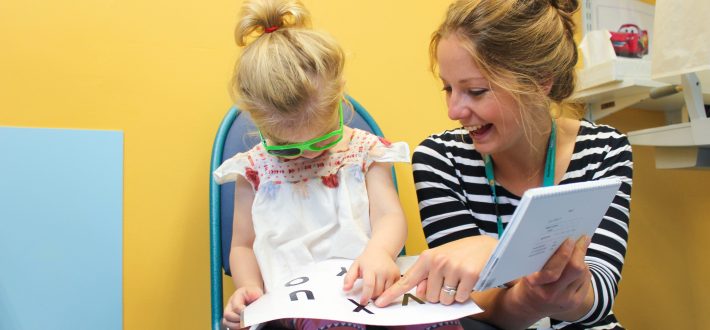All babies will have an eye screening at birth and again at about six - eight weeks of age by a GP or health visitor.
Although serious vision problems during childhood are rare, routine eye checks are offered to newborn babies and young children to identify any problems early on. Free NHS sight tests are also available at opticians for children under 16 and for young people under 19 in full-time education.
Around 1 year, or between 2 and 2-and-a-half years
You may be asked if you have any concerns about your child's eyesight as part of your child's health and development reviews. Eye tests can be arranged if necessary.
Around 4 or 5 years old
Your child's eyes may be examined soon after they start school. This is called vision screening and it checks for reduced vision in one or both eyes. The aim is to detect any problems early so that treatment can be given if needed. Vision screening is usually carried out in your child's school. However, this does not happen in all areas. If your child's vision is not checked at school, take them to your local opticians for an eye examination.
Go to an optician if you have any concerns about your child's vision at any stage (see spotting signs of a vision problem).



